 |
|

|
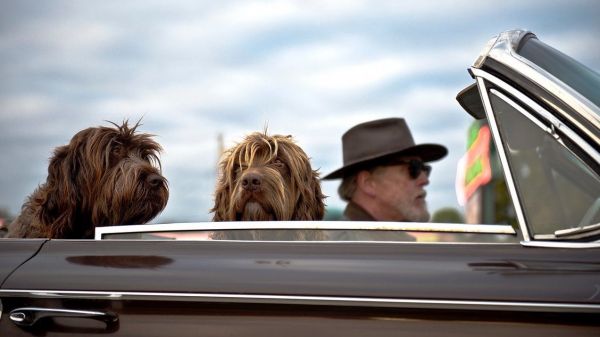 |
 |
Growing Old Gracefully |
July 2020 |
 |
|
 |
Our newest Aussie
There was great excitement at Orange Vet Hospital last week when our nurse Amber qualified for Australian citizenship.
Amber joined us in 2011 as a fresh faced Canadian backpacker. She was an experienced vet nurse who was spending time at Cumnock fulfilling her visa renewal requirements. Luckily we were able to persuade her to revisit those nursing skills and join OVH.
It's been quite a long journey from those first days with OVH sponsoring her employment, her meeting and falling in love with Brent, marriage and the arrival of twins Lila and Henry.
We are thrilled that Amber can now call herself an Aussie.
Congratulations Amber. Woohoo!
Our July newsletter is all about the Senior Pet.
We have lots of articles discussing health issues in older animals and what we need to be watching out for. We can make the lives of our senior pets much richer if we are aware of their changing needs. Enjoy the read.
|
 |
 Amber's family sent her these beautiful flowers to celebrate her Aussie Day!
|
 |
 |
|
|
|
 |
 |
01 Are these the world's oldest pets? |
 |
 |
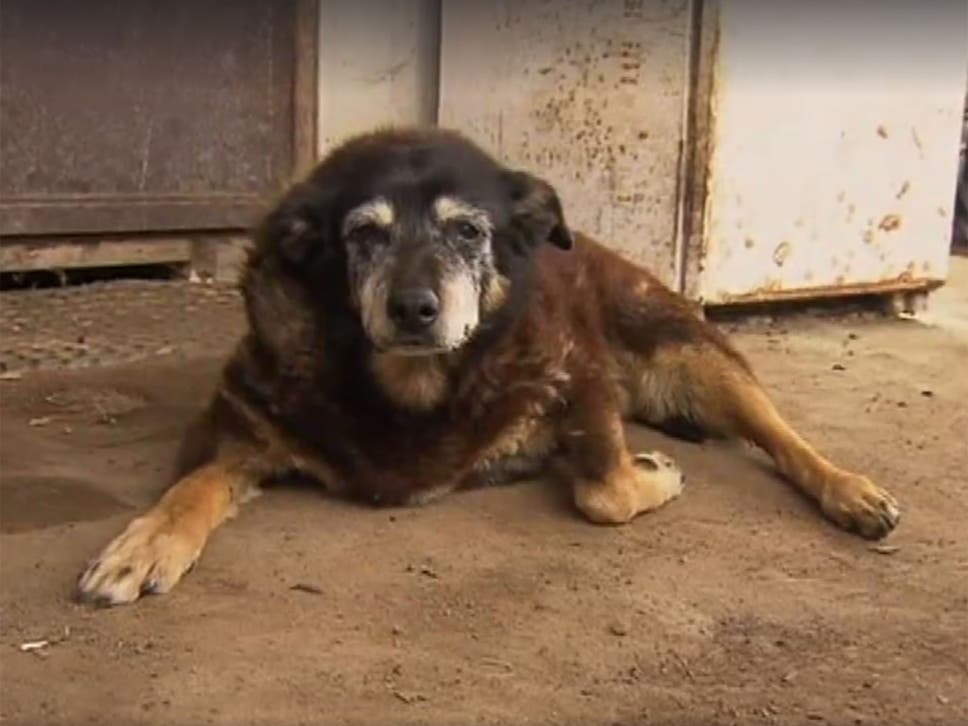
July is senior pet care month, and we have a newsletter packed with information about how to care for your ageing pet, as well as some of the more common diseases we see in our geriatric patients.
To get the newsletter started, we have found a few of the world’s oldest recorded pets, and think that the age of some of these might surprise you!
Oldest dog
For a long time, Bluey held the title of the oldest dog to have ever lived. Bluey was a cattle dog from Australia who apparently lived to the age of 29 years and 5 months. There must be something in the water here in Australia, as there was also another dog, Maggie, the kelpie who was thought to be around 30 years old when she died. You can read about Maggie here.
Oldest cat
Creme Puff, who lived in Austin, Texas, died at the age of 38 years and 3 days (equivalent to approximately 169 cat years!)
Oldest rabbit
Flopsy was an Australian rabbit, who became a well-loved pet, he was found in the wild nearly 19 years before he died in 1984.
Oldest Tortoise
Adwaita was a tortoise who apparently lived to be 255 years old. Adwaita obviously outlived her owner so had to be relocated to a zoo!
Read More
|
 |
 |
|
 |
 |
02 How to make an old pet comfortable |
 |
 |
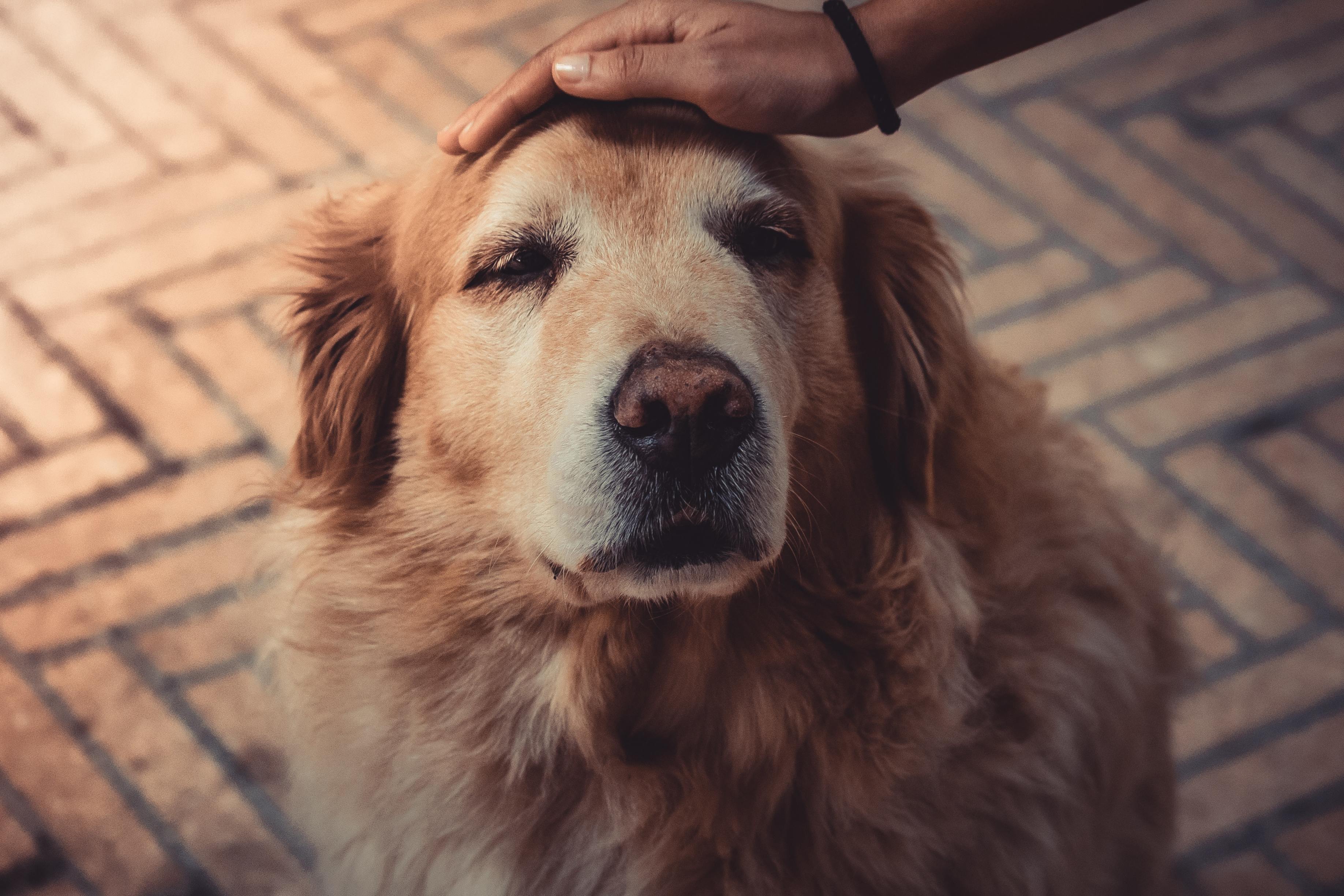
It can sometimes be hard to face the fact that our pets age. A grey muzzle, a loss of hearing and the idea of senior pet food can be very confronting. But senior pets are unique, so it’s important not to turn a blind eye to their care and to know how to keep them happy and healthy.
Here are our top tips to help make senior pets comfortable:
Give them plenty of attention
Love and attention is probably the most important thing you can give a senior pet. Regular interaction can also mean you pick up on changes early, and if you notice that things are ‘not quite right’, you can seek veterinary care as soon as possible. Never dismiss the importance of regular time with your pet.
Feed a top-quality diet
As our pets age, their nutritional requirements change. Older animals may not cope well with excessive nutrients or certain deficiencies. Being the correct weight can have a significant impact on their quality of life and mobility. Ask us for a specific senior diet recommendation.
Keep exercise regular for dogs
Gentle and regular exercise is a must, even for arthritic pets. A daily walk that is not too strenuous is vital to keep joints moving and maintain muscle mass. Walks are also important for mental stimulation.
Modify your home to accommodate a senior pet
Ways you can help your pet move about at home can make a big difference. If your pet has mobility issues, consider the use of ramps, elevated food and water bowls. A warm and comfy spot to rest is also essential.
Arrange twice-yearly health checks
More regular health checks are essential for your ageing pet, even if you don’t notice any changes at home. Prevention of disease and early management is always ideal, and there is plenty we can do to improve the quality of your senior pet’s life.
Phone us if you have any questions about your senior pet, we are always here to give you the best advice.
|
 |
 |
|
 |
 |
03 The geriatric cat and thyroid disease |
 |
 |
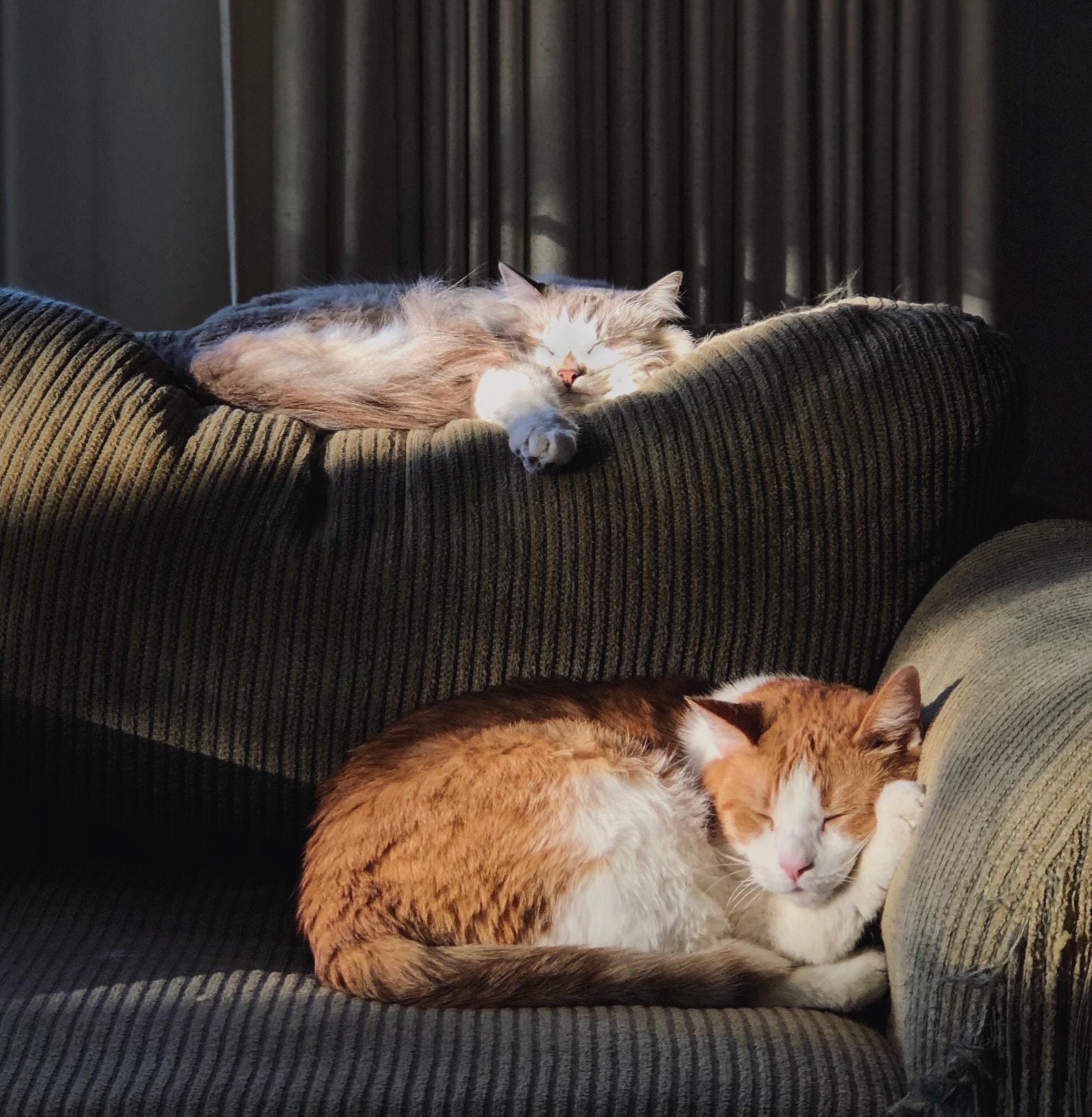
“My cat seems to have lost weight, but he is still so hungry. Is he just getting old?"
An older cat who is losing weight but still hungry is a presentation we see regularly. The cause is usually hyperthyroidism, and a routine blood test can usually confirms this diagnosis.
Hyperthyroidism is the result of an overproduction of thyroid hormone. The excess thyroid hormone upsets the regulation of carbohydrates, fats, and proteins, as well as the function of the heart. If untreated, it can lead to damage of the heart and kidneys, leaving your cat seriously unwell.
The main signs of hyperthyroidism include:
- Weight loss
- Normal or increased appetite - some cats are ravenous
- Poor coat quality or appearance of an unkempt coat
- Increased vocalisation and hyperactivity
- Vomiting Increased thirst and urination
Treatment options for hyperthyroidism depend on how well the kidneys and the heart are functioning. In most cases, it involves life-long daily medication and regular blood, urine and blood-pressure tests. We can even arrange a compounded medication that you can apply to your cat’s ears (a transdermal medication) to reduce the stress of having to medicate your cat orally.
If you are worried about your cat or think they may be showing symptoms of hyperthyroidism, call us to arrange an appointment. It’s essential that we also rule out other diseases, such as primary kidney disease or diabetes.
We are always here to give you the best advice when it comes to the care of your geriatric pet, so please ask us for more information or if you have any concerns.
|
 |
 |
|
 |
 |
04 Could my dog be incontinent? |
 |
 |
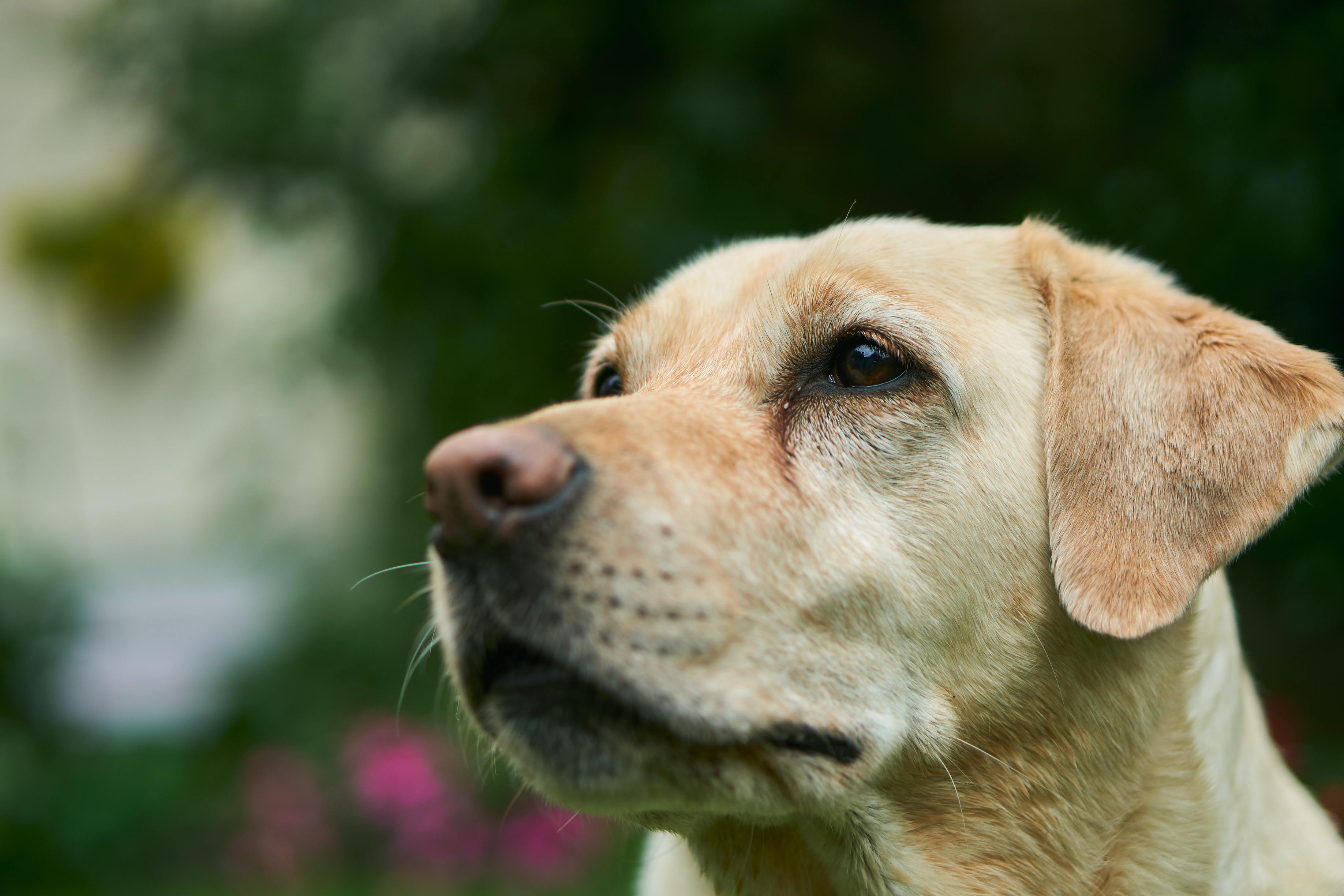
Did you know that some female dogs can become incontinent as they age? The condition is known as urethral sphincter mechanism incompetence (USMI), and this is just a fancy medical term used to describe a weak control of the muscles that control the lower urinary tract.
Watch out for:
- Dribbling of urine or wet patches on the hair around legs
- Wet bedding or puddles on the floor after lying down
- Signs of discomfort or behavioural changes
- Unexplained urinary tract infections
- Scalding of the skin around the vulva
- Excessive licking of the genital area
What causes incontinence in female dogs?
USMI is a cause of urinary incontinence in adult female dogs. Dogs that have been speyed (desexed) may be more susceptible to the condition due to a lack of circulating oestrogen. The reduced oestrogen levels result in reduced stimulation of the sphincter muscle that surrounds the urethra (the structure that takes urine from the bladder to outside the body). Other risk factors include obesity, size and breed of the dog, and bladder position. These effects may all contribute to involuntary leakage of urine, also known as incontinence.
It is important to note that the risk of USMI is not a valid reason to avoid desexing your dog. Female dogs that have not been speyed are at a much higher risk of other more life-threatening conditions such as pyometra. The age at which we desex your pet may have an impact on USMI, and we can discuss the most appropriate time for desexing your female dog with you.
The good news is that there is a medication available to help treat USMI that is both safe and effective.
If you think your pet may be showing signs of incontinence, we must examine your pet and rule out other diseases. A thorough medical workup usually involves a urine test, blood test and sometimes further imaging of the urinary tract.
You should always ask us for advice if you are worried about your pet.
|
 |
 |
|
 |
 |
05 6 signs of dementia |
 |
 |

Have you got an older dog who is awake more at night or getting confused at times? Have you just put it down to 'old age'?
Your dog may be suffering from canine dementia, a disease also known as Canine Cognitive Dysfunction. The disease has been recognised in dogs for some time and has many similarities to Alzheimer's disease in humans. There is also more and more evidence that cats can also suffer from a form of dementia, so if you are worried about your pet, you should always arrange a check-up with us.
Some of these signs of dementia can be subtle, and you may not even realise your senior pet is suffering from the disease.
Watch out for:
- A disturbance in sleep patterns, pacing at night, the inability to settle to sleep
- Disorientation and confusion - getting stuck in doorways is common
- Lack or decreased levels of interaction with family members or other pets
- Forgetting toilet training
- Reduced activity levels
- Barking for no reason, staring at walls
Diagnosis of dementia is by process of elimination, and many diseases can lead to similar signs. Your pet will require a blood and urine test as well as a blood pressure check, as a minimum to rule out other diseases.
It's essential to keep your pet active and engaged and employ the idea that, like humans, your pet needs to 'use it, or lose it' when it comes to the brain. Games such as hide and seek with treats as well as regular exercise are all essential in helping prevent a rapid decline in your pet's cognitive dysfunction.
Some medications may assist with improving brain function, as can a prescription diet help to slow the progression of the disease. We will be able to work with you and your pet to help reduce your pet's anxiety and to ensure dementia does not affect your pet's quality of life.
|
 |
 |
|
 |
 |
06 Animal News In Brief |
 |
 |
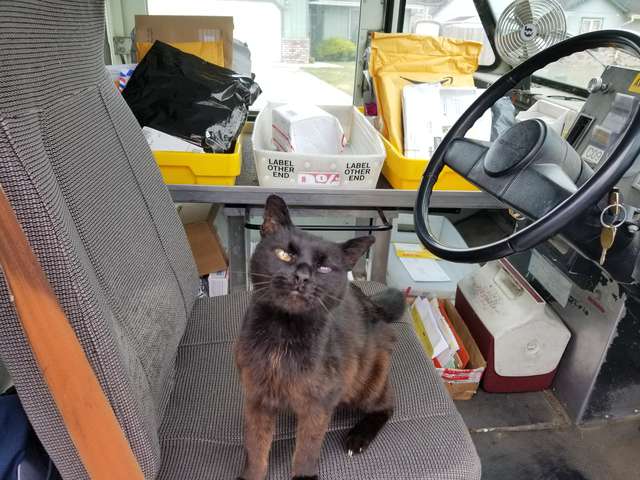
Image source: Dodo
Friends for (wild) life
Breaking the barriers of friendship are two unusually coupled characters, Elsa the koala and Hope the wombat. After just a couple months behind closed doors, the Australian Reptile Park in Somersby, New South Wales uncovered the unpredicted kinship of their two inhabitants. Despite the lifestyle differences between burrows and treetops, as they nestle their heads together in fondness, these friendly residents naturally demonstrate the beauty in neighbourliness and diversity. As two of Australia’s most iconic native animals, the pair may even inspire other wildlife duos. Who do you think is next?
Find out more about the Reptile Park’s friendship here.
-----
A senior cat and her postman pat
USA senior “kit-izen”, Bijou, has followed a consistent routine throughout her life with a particularly meaningful segment in it each week. Her community comrade, Mike, is the local postman of Bijou’s hometown. From day one, through their years of friendship, without fail, Mike and Bijou greet each other every week at mail time for much-awaited “pets and squeezes”. The senior Californian kitty even pushes her luck for a bit of a ride in the delivery truck. Despite her bossy-boot pursuits to climb into the delivery truck, Bijou’s call-ins never fail to warm Mike’s heart. Although she may be an old gal, when it comes to the love, friendship and visits for her special friend Mike, Bijou always delivers.
Find out more about Bijou and Mike here.
-----
Kibble for kindness
Running short on pet food is every pet’s worst nightmare, but it’s a whole different story when your human is living on the streets. The good-hearted community of Pets of the Homeless have shifted the dynamics behind accessibility of pet food. Not only does the charity provide large quantities of pet food from a variety of brands, free of charge, but they also provide practical materials, veterinary care and emergency accommodation. Touring Victoria’s homeless shelters and soup kitchens, you can catch the group handing out sandwich bags filled to the brim with biscuits, to ensure no pup or kitty goes without. Pets of the Homeless always welcome donations to help them to continue their altruistic, much-appreciated work.
You can donate to Pets of the Homeless here and learn more about the charity here.
|
 |
 |
|
|
